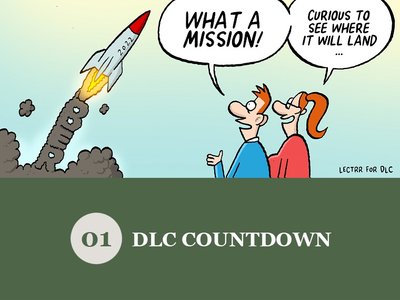
No business wants to run the risk that its distribution, agency or supply agreements (also known as “vertical agreements”) are found to be unlawful and invalid. Even worse, no business wants to be trapped by a competition authority and pay fines or be sued by its clients for private damages because of such unlawfulness. Compliance with competition law is key and the only sensible way forward.
The most efficient way to secure the validity and enforceability of vertical agreements under EU competition rules is to make use of a so-called “block exemption”. The concept of a block exemption is rather straightforward and relies on a “tick the box” exercise. If that exercise is successfully carried out, the agreement and each of its restrictions benefit from an automatic exemption. No problems of validity or enforceability, no risk of fines. The block exemption operates therefore as a safe harbour for distribution, agency and supply agreements.
It is a must for legal practitioners (both in-house and external) to be familiar with the block exemption and its requirements. Better safe than sorry. The block exemption is relevant in every EEA country and in every line of business.
Currently, Commission Regulation 330/2010 provides the block exemption that applies to distribution, agency and supply agreements. It is often referred to as the “VBER”. The VBER is accompanied by the “Vertical Guidelines”, which are designed to help businesses to assess the distribution law rules.
The VBER’s impact is wide ranging. It covers all types of distribution set-ups, including exclusive distribution, selective distribution, free distribution, agency and franchising. It contains rules concerning e-commerce. It addresses specific restrictions such as limitations on the setting of prices, exclusivity, territorial restrictions, location clauses, customer restrictions, non-compete obligations and the like.
The VBER will expire on 31 May 2022.
Preparations for the new block exemption regime are in full swing. The European Commission has published its proposals for a new VBER and a new set of Vertical Guidelines. Public and expert consultations are in the meantime taking place. The general direction for the future is therefore gradually becoming known. Amended proposals are expected to be released beginning 2022.
Important changes are in the pipeline, affecting all players in the field operating at different levels of the production or distribution chain. These new rules will apply with respect to any offline and online businesses, and those of their suppliers, customers, distributors and competitors. Put differently, these changes will have a direct impact on every company that makes use of distribution agreements.
However, the differences with the existing VBER regime are often rather technical and the practical implications are not always immediately apparent. It is therefore not so easy to know what is coming and how to best prepare. This may lead to legal uncertainty and therefore, up-to-date guidance is key.
One of the missions of the Distribution Law Center is to provide accessible information on the law applicable to vertical agreements. In line with that mission, the Distribution Law Center will start as of next week with the release of “DLC countdown” newsletters providing practical, comprehensive and hands-on guidance on the changes to be expected. The input is based on the most recent proposals issued by DG Competition and may change as amended proposals become available.
Counting down towards 1 June 2022, we aim to provide you with regular updates as well as the necessary legal knowhow in order to fully prepare your business for the future. We will be your reliable source of information with respect to this complex area of law.
MORE CONTENT OFFERED BY THE DISTRIBUTION LAW CENTER
Feel free to check out the Distribution Law Center platform for much more information on the laws governing vertical agreements, covering both competition and commercial law. 27 specialized teams from all over the EEA are working hard to turn the platform into your favourite source of guidance and information.
The “DLC countdown” newsletters are offered to you by HAVEL & PARTNERS.
If you need more information or our assistance with setting up the distribution system, please contact Robert Neruda or Štěpán Štarha, who are the firm’s partners responsible for this area.
The other law firms participating in the Distribution Law Center are the following: Arntzen de Besche, Arnecke Sibeth, Banning, Cederquist, Chrysses Demetriades & Co, CMS Francis Lefebvre, contrast, Delchev & Partners, Dittmar & Indrenius, Divjak Topić Bahtijarević & Krka, Eisenberger + Herzog, Eversheds, Horten, Kyriakides Georgopoulous, Modzelewska & Paśnik, Muşat & Asociaţii, Pavia e Ansaldo, Pérez-Llorca, Philippe & partners, SBGK, Šelih & partnerji, SRS Advogados and TGS Baltic.
WANT TO KNOW MORE? STAY TUNED…
Counting down towards 1 June 2022, we aim to provide you with regular updates and the necessary legal knowhow in order to fully prepare your business for the future. Please also check out the Distribution Law Center platform (www.distributionlawcenter.com) and our LinkedIn page for much more information on the laws governing vertical agreements, covering both competition and commercial law. 27 specialized teams from all over the EEA are working hard to turn the platform into your favourite source of guidance and information.